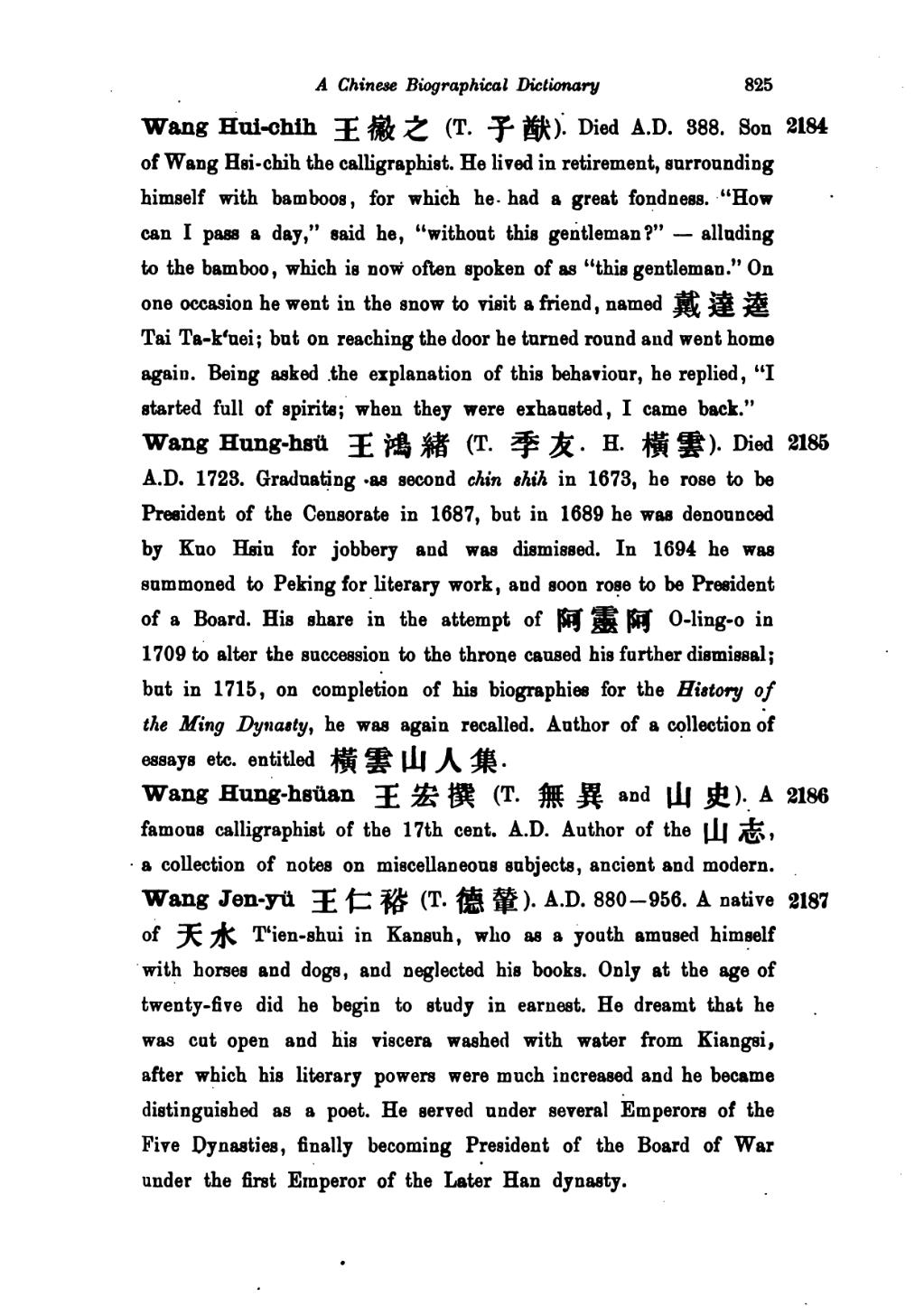2184
Wang Hui-chih 王徽之 (T. 子献). Died A.D. 388. Son of Wang Hsi-chih the calligraphist. He lived in retirement, surrounding himself with bamboos, for which he had a great fondness. "How can I pass a day," said he, "without this gentleman" — alluding to the bamboo, which is now often spoken of as "this gentleman." On one occasion he went in the snow to visit a friend , named 戴達逵 Tai Ta-k'uei; but on reaching the door he turned round and went home again. Being asked the explanation of this behaviour, he replied, "I started full of spirits; when they were exhausted, I came back."
2185 Wang Hung-hsti ^i^^ (T. ^ ^. H. ii f|). Died A.D. 1728. Graduating ^as second chin ahih in 1673, he rose to be President of the Gensorate in 1687, but in 1689 he was denounced by Euo Hsiu for jobbery and was dismissed. In 1694 he was summoned to Peking for literary work, and soon rose to be President of a Board. His share in the attempt of p^ ^ p^ 0-ling-o in 1709 to alter the succession to the throne caused his further dismissal; but in 1715, on completion of his biographies for the Hiatortf of the Ming Dynaaty, he was again recalled. Author of a collection of essays etc. entitled ;^ ^ |i| ^ ^.
2186 Wang Hung-hsilan ^ ^ ^ (T. M M ^^^ \U ^ ) A famous calligraphist of the 17th cent. A.D. Author of the ^| ;^, a collection of notes on miscellaneous subjects, ancient and modern.
2187 Wang Jen-yü 王仁裕 (T. 徳輦). A.D. 880-956. A native of 天水 T'ien-shui in Kansuh, who as a youth amused himself with horses and dogs, and neglected his books. Only at the age of twenty-five did he begin to study in earnest. He dreamt that he was cut open and his viscera washed with water from Kiangsi, after which his literary powers were much increased and he became distinguished as a poet. He served under several Emperors of the Five Dynasties, finally becoming President of the Board of War under the first Emperor of the Later Han dynasty.

